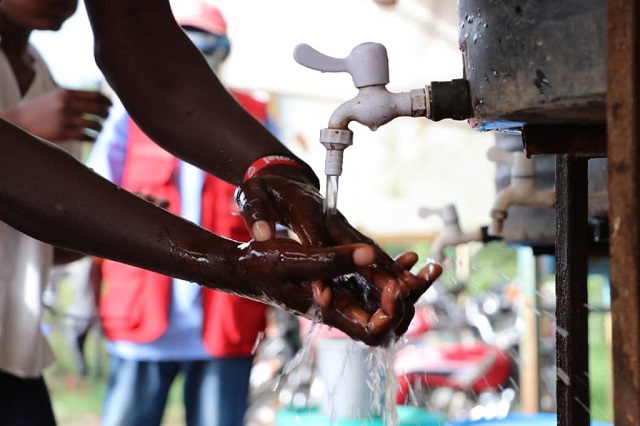
Kampala, Uganda | THE INDEPENDENT | With the zeal of hand washing going down months into coronavirus disease transmission in the country, experts have stated that it was inevitable as people were only acting in shock following announcements of a strange killer disease.
Hand hygiene alone is touted as having the ability to keep away many pathogens including the previous coronaviruses that have affected other countries and the COVID-19 pandemic. Even before the the virus was confirmed in the country, many people including politicians and religious leaders came out to demonstrate how proper handwashing is done.
Around that time, the Ministry of Health said that the percentage of those that wash hands that has always staggered around 30 percent had increased to slightly above 50 percent. Now, experts worry that we have gone steps back even as the virus continues to transmit with the country having over 700 infections currently.
Dr Richard Mugambe, a lecturer in Makerere University’s Department of Disease Control and Environmental Health says that sustaining hand hygiene would have been possible if implementer’s of the initiative adopted a behavioral model to strategize on how this behavior that’s not deeply entrenched in the community continues.
Dr Fredrick Oporia, an epidemiologist and currently a disease control research fellow at Makerere University School of Public Health says that observing how people are washing hands, only a few use the recommended quantities and spend the recommended time of 20 seconds washing their hands.
In public places like markets, business centres and other facilities, notes that at the height of the scare, people had put in place facilities which have only remained as a shield to protect them from enforcement officers.
However, David Katwere Ssemwanga, the Technical Assistant of Uganda Sanitation Fund in the Ministry of Health said that the Ministry has made it mandatory for all households and business premises to have wash facilities although they are still challenged with enforcement something they hoped could be made stronger by the COVID-19 pandemic.
Recognizing that people even in crowded city places have gone back to their past, he said they plan to come up with more stringent measures but only after ensuring that there’s considerable access to safe water for all. He says their interventions have started with health facilities where they are now availing them foot-operated handwashing facilities with funding from UNICEF.
Even in these facilities, he acknowledged that not all have water in place but the plan is to avail them water such that individual facilities can provide themselves soap. But as initial focus on sustainable handwashing facilities goes to health facilities, key crowded places like markets and business areas pose a big risk of infection.
For instance, in Kikuubo, Kampala’s major business hub, one of the administrators Sam Bafirawala Muyomba tells URN that to be able to do some bit of handwashing at the all-time crowded centre, they buy about 60 jerry cans of water at a fee of 500 Shillings each.
He admits they are conducting their handwashing on the principle of something is better than nothing, not as WHO recommends.
******
URN
 The Independent Uganda: You get the Truth we Pay the Price
The Independent Uganda: You get the Truth we Pay the Price



